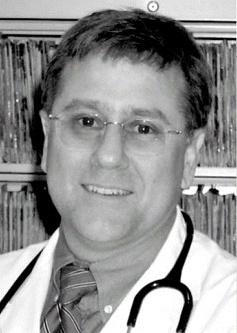To make this arrangement work, Dr. Robb has kept his overhead as low as possible. He shares an office with another physician and he has no staff. He pays for a virtual staff, who answers his phone 24 hours a day, seven days a week. They pass the patient information on to him. He then calls the patient back and does a very brief interview and offers to schedule an appointment for them.
Explore This Issue
June 2006He does have a large cohort of colleagues-doctors, audiologists, physical therapists around the state and country-with whom he collaborates.
Like Dr. Gianoli, Dr. Robb said that the arrangement allows him to practice medicine the way he wants, providing strong patient care.
It is either (a cash-only system) or a single-payer system. We do not need and cannot afford a third-party payer system. – Robert S. Berry, MD
Are there patients who cannot afford his services? He said that there almost always is a way to get things done and paid for. For patients who really cannot afford his services, he suggests they apply for help from the FLD Tinnitus Assistance Fund, run by the American Tinnitus Association.
Because he has opted out of Medicare, the system will not pay for his professional services, but they do still pay for tests. He estimates that he loses about 10% to 15% of his potential Medicare patients each year because they are determined to stay within the system. For those individuals, he offers them the best names in town who can help.
Helping Veterans and Injured Workers
Dr. Robb has made two exceptions to his no-third-party-payers approach: for US military veterans and for workers compensation claims.
If a veteran does not have access to a tinnitus or hearing imbalance specialist, they can go to their ENT or neurology doc at the VA and ask to see me. They can get approval to go through the fee-basis service so they can go outside the VA. Then I will bill the VA and the VA pays me; that way the veteran doesn’t have to pay out of pocket, said Dr. Robb.
Approximately 15% of new tinnitus cases are the result of a head and neck injury, which can be associated with a car accident or an accident at work. He said that many of these patients are initially told that their tinnitus is not related to the accident. I think these patients really need an advocate. I had some concerns that they would not get the care if I did not bill there insurance. I can’t say no to this, because they have nowhere else to go, he said, because many physicians do not take workers compensation patients as they cannot afford to get pulled out of their office for depositions and other medical litigation.
Outside Resources
Both Dr. Robb and Dr. Gianoli said that they relied on information from the American Association of Physicians and Surgeons for help in learning how to set up a cash-only practice.

Leave a Reply